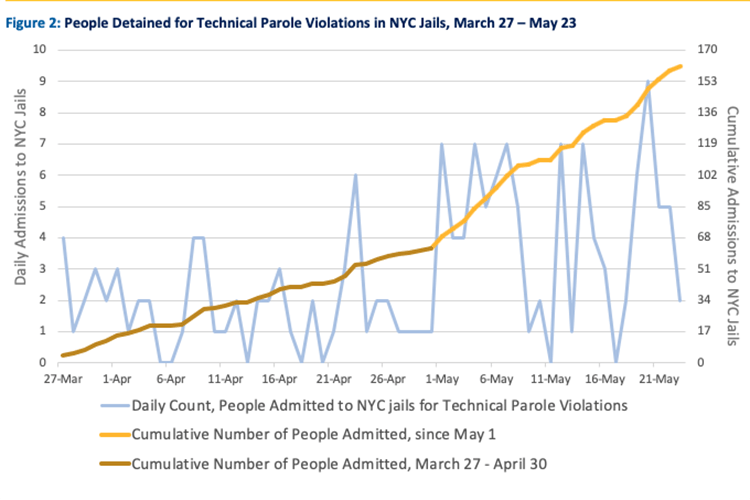The research brief concludes that the state released around three-quarters of those originally anticipated by the NYS Department of Corrections and Community Supervision.
It additionally finds that in the two months since the directive was issued, more than 160 people accused of technical parole violations were newly sent to the Rikers Island jails. This number appears to be accelerating and is projected to surpass the number of people released by June or early July, 2020.
In response to the limited and waning effect of the March release order, the report recommends immediate steps for both the NYS Department of Corrections and Community Supervision and state policymakers:
- Unless an individual poses a demonstrable and imminent public safety risk, all people held in jails and prisons for technical parole violations be released
- DOCCS cease issuing new warrants for technical violations until the pandemic subsides
- State policymakers should enact legislative reforms such as ending automatic pre-hearing incarceration for people facing technical violations; eliminating incarceration for less serious technical violations; capping incarceration terms for technical violations; and incentivizing parole compliance through grants of “merit time” for following the rules.
The above recommendations comport with best practices in the field, limit exposure to dangerous correctional settings now and in the event of a COVID-19 rebound, and will save considerable resources at the state, city, and county levels.
